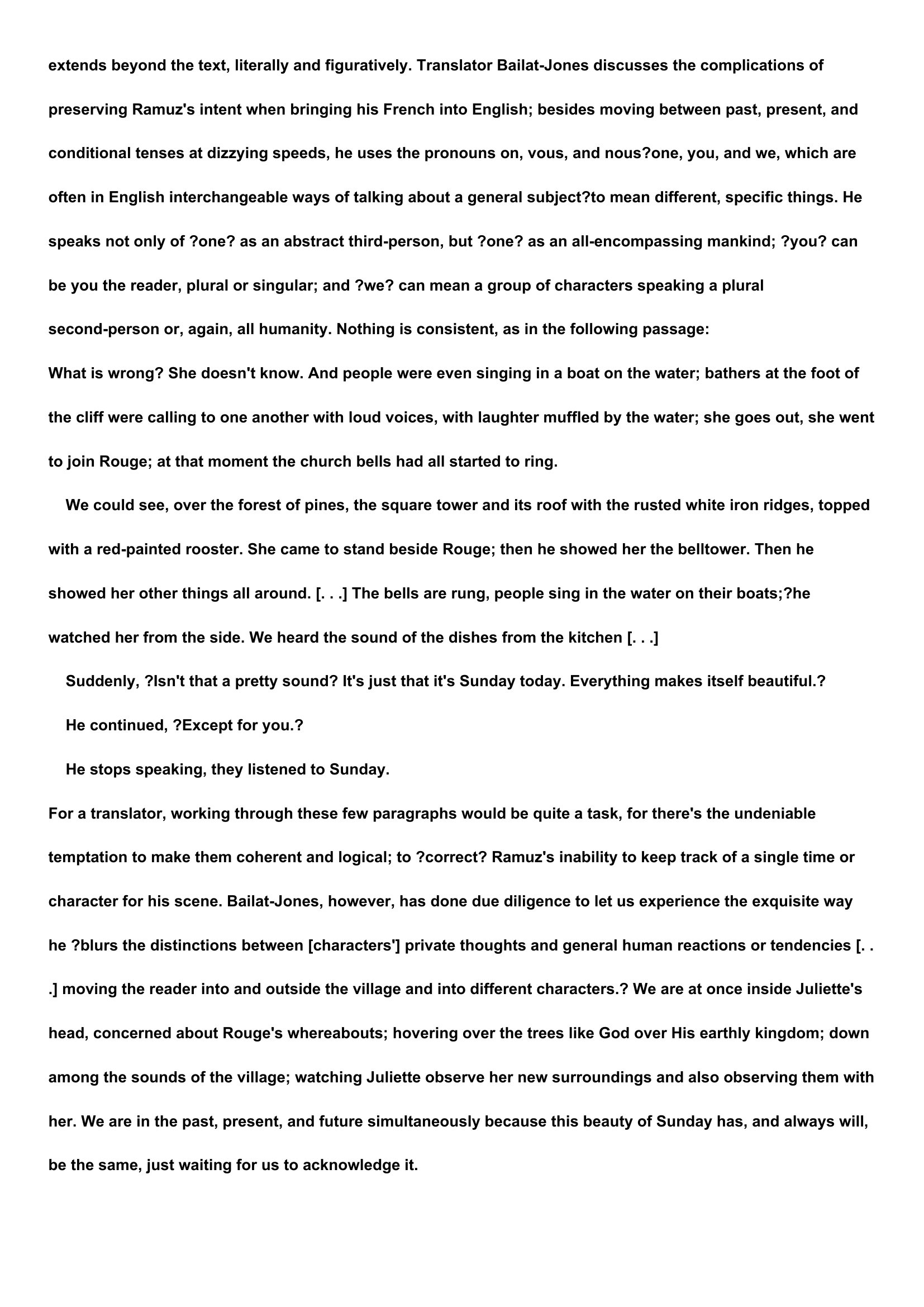Beauty on Earth Ramuz
Publié le 11/05/2018

Extrait du document
«
extends beyond the text, literally and figuratively.
Translator Bailat-Jones discusses the complications of
preserving Ramuz's intent when bringing his French into English; besides moving between past, present, and
conditional tenses at dizzying speeds, he uses the pronouns on, vous, and nous?one, you, and we, which are
often in English interchangeable ways of talking about a general subject?to mean different, specific things.
He
speaks not only of ?one? as an abstract third-person, but ?one? as an all-encompassing mankind; ?you? can
be you the reader, plural or singular; and ?we? can mean a group of characters speaking a plural
second-person or, again, all humanity.
Nothing is consistent, as in the following passage:
What is wrong? She doesn't know.
And people were even singing in a boat on the water; bathers at the foot of
the cliff were calling to one another with loud voices, with laughter muffled by the water; she goes out, she went
to join Rouge; at that moment the church bells had all started to ring.
We could see, over the forest of pines, the square tower and its roof with the rusted white iron ridges, topped
with a red-painted rooster.
She came to stand beside Rouge; then he showed her the belltower.
Then he
showed her other things all around.
[.
.
.] The bells are rung, people sing in the water on their boats;?he
watched her from the side.
We heard the sound of the dishes from the kitchen [.
.
.]
Suddenly, ?Isn't that a pretty sound? It's just that it's Sunday today.
Everything makes itself beautiful.?
He continued, ?Except for you.?
He stops speaking, they listened to Sunday.
For a translator, working through these few paragraphs would be quite a task, for there's the undeniable
temptation to make them coherent and logical; to ?correct? Ramuz's inability to keep track of a single time or
character for his scene.
Bailat-Jones, however, has done due diligence to let us experience the exquisite way
he ?blurs the distinctions between [characters'] private thoughts and general human reactions or tendencies [.
.
.] moving the reader into and outside the village and into different characters.? We are at once inside Juliette's
head, concerned about Rouge's whereabouts; hovering over the trees like God over His earthly kingdom; down
among the sounds of the village; watching Juliette observe her new surroundings and also observing them with
her.
We are in the past, present, and future simultaneously because this beauty of Sunday has, and always will,
be the same, just waiting for us to acknowledge it..
»
↓↓↓ APERÇU DU DOCUMENT ↓↓↓
Liens utiles
- commentaire composé: Aline - Charles Ferdinand Ramuz
- Le personnage de BELET Samuel de Charles-Ferdinand Ramuz
- DERBORENCE (résumé & analyse) de Charles-Ferdinand Ramuz
- BESOIN DE GRANDEUR. Charles - Ferdinand Ramuz (résumé & analyse)
- GRAND PRINTEMPS (Le). Charles-Ferdinand Ramuz (résumé)

































